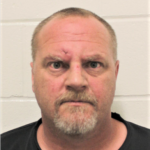The government is acting to get more Nova Scotians the emergency care they need, faster.
The plan to improve emergency care will ensure people with the most urgent needs receive care first. It will improve ambulance response times and offer more places for people to receive care, easing pressure on emergency departments.
“We’ve been making record-high investments and acting in all areas of healthcare since we formed government,” said Michelle Thompson, Minister of Health and Wellness. “The recent tragic losses in Cumberland and Cape Breton have added to the sense of urgency. Everyone working in emergency care do all they can, day in and day out, to provide the best possible care for their patients. This plan should help them help their patients get the care they need more quickly.”
Actions to ensure those with the most urgent needs get care quicker include:
— having teams led by doctors focus on getting patients out of ambulances and into the emergency department faster
— assigning physician assistants and nurse practitioners to provide care in emergency departments
— adding care providers and patient advocates to support patients in waiting rooms
— making virtual care available to more patients with less urgent needs
— providing healthcare teams with real-time data on where beds are available across the system and what tests or other actions are needed to get patients well and home more quickly; this will free up beds for others.
Actions to support paramedics include:
— paramedic training at more Nova Scotia Community College campuses
— providing a tuition rebate of $11,500 to paramedics who agree to work in the province for at least three years
— adding a second air ambulance to handle routine transfers for tests and treatment between Sydney and Halifax and Yarmouth and Halifax, allowing ground ambulances to stay in communities more often
— more funding to train medical first responders who sometimes arrive at an emergency scene first.
Actions to give people more places to receive care, reducing pressure on emergency care, include:
–support for new and existing collaborative family medicine practices so they can see more patients
— expanding services in more pharmacies
— adding hours for virtual care appointments and enabling out-of-province doctors who are licensed here to offer virtual care
— providing more mobile primary care, mobile respiratory care clinics and urgent treatment centres
— making available a new phone app, known as a digital front door, that will help people find the right services for their needs and where they are offered.
The plan to improve emergency care is part of the government’s broader strategic plan to improve healthcare, Action for Health.
“The healthcare system was built during a different era, and aside from technological advances, it has barely changed since. That is not our future. No one person can move this mountain by themselves. We can do it if we all pull together with a common goal: a system that is ready, responsive and reliable.”
– Karen Oldfield, President and CEO, Nova Scotia Health
Additional Resources:
Action for Health: https://novascotia.ca/actionforhealth/
Mandate letter of the Minister of Health and Wellness: https://novascotia.ca/exec_council/letters-2021/ministerial-mandate-letter-2021-DHW.pdf
Source: Release


